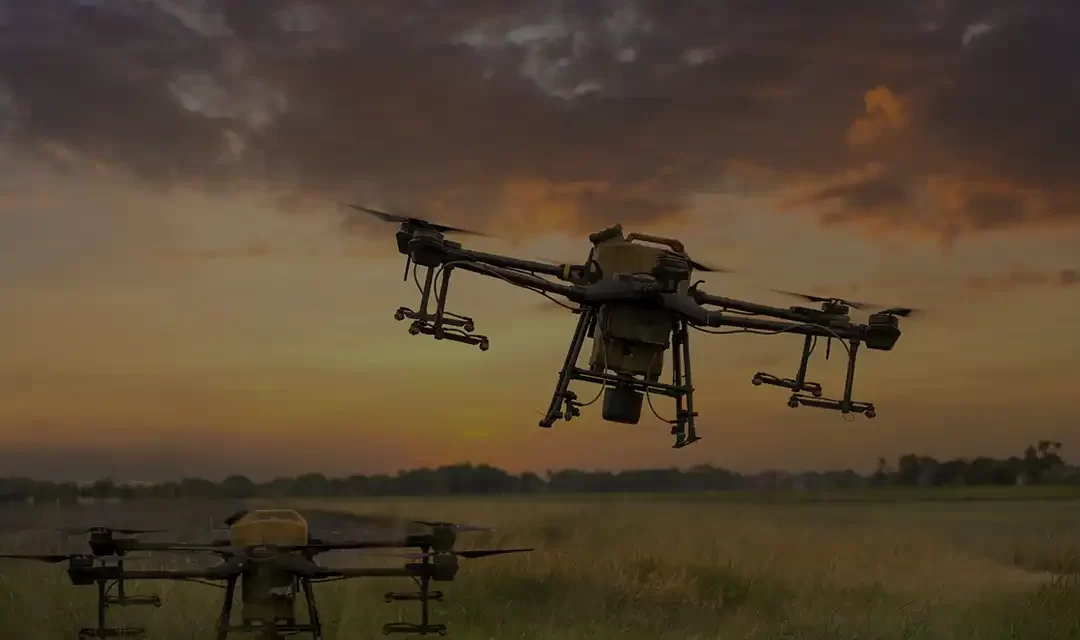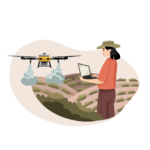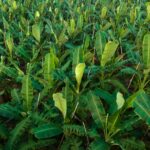As businesses across various industries are harnessing the power of AI to enhance efficiency and achieve better results, the agriculture sector is also embracing this transformative technology. From soil analysis to precision crop irrigation, the AgTech industry is on the brink of an AI-driven revolution. In this blog, we explore how AI is set to redefine farming practices and the impact it will have on agriculture worldwide.
With the global population continuing to rise rapidly, the pressure on the agricultural industry to meet the increasing food demands is intensifying. To address this challenge, a paradigm shift in farming practices is essential—one that blends traditional farming wisdom with the latest AI technologies.
AI has already started making its mark in agriculture, with countries like Australia and Brazil leading the way in integrating AI into their farming practices. As AI becomes more prevalent, understanding its application in agriculture and the benefits it offers to farmers is crucial.
The Current State of AI in Agriculture
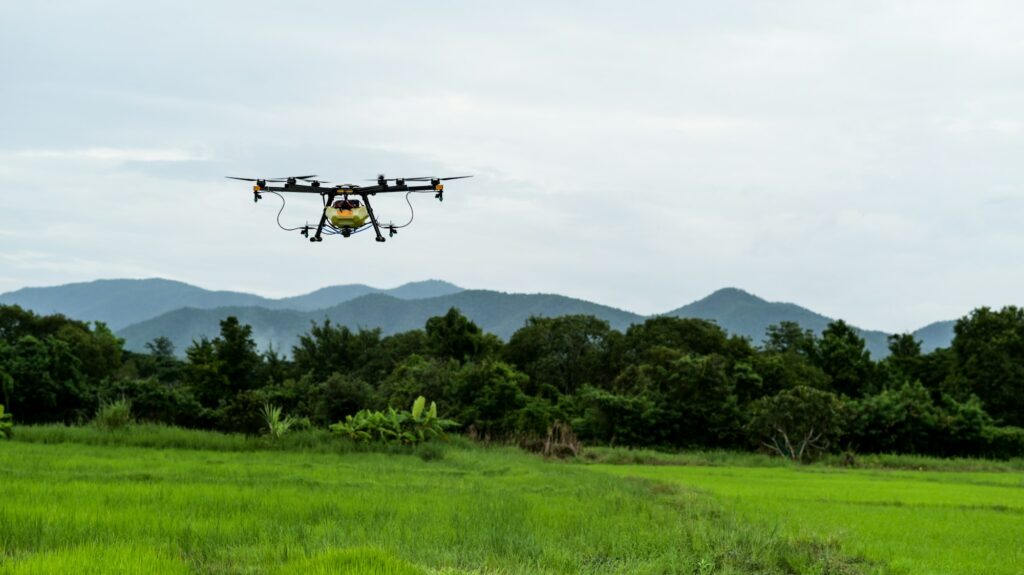
The ongoing advancements in research and development are bringing about significant innovations in agriculture, and AI is at the forefront of this transformation. Here are some key statistics highlighting the growth of AI in the agricultural market:
- The AI in agriculture market is projected to grow from USD 1.7 billion to USD 4.8 billion by 2028, with a Compound Annual Growth Rate (CAGR) of 23.1% from 2023 to 2028.
- The global smart farming market is expected to increase from approximately USD 15 billion in 2022 to USD 33 billion by 2027.
- The smart manufacturing market, which leverages robotics and big data analytics for more efficient and eco-friendly production, is forecasted to grow to over USD 650 billion by 2029.
- According to industry insights, the global agricultural robots’ market is anticipated to reach around 36 billion units by 2030.
These promising forecasts underscore a future where AI will play a pivotal role in driving innovation, sustainability, and efficiency in agriculture, leading to a more resilient and productive global food system.
Challenges of Traditional Farming Methods
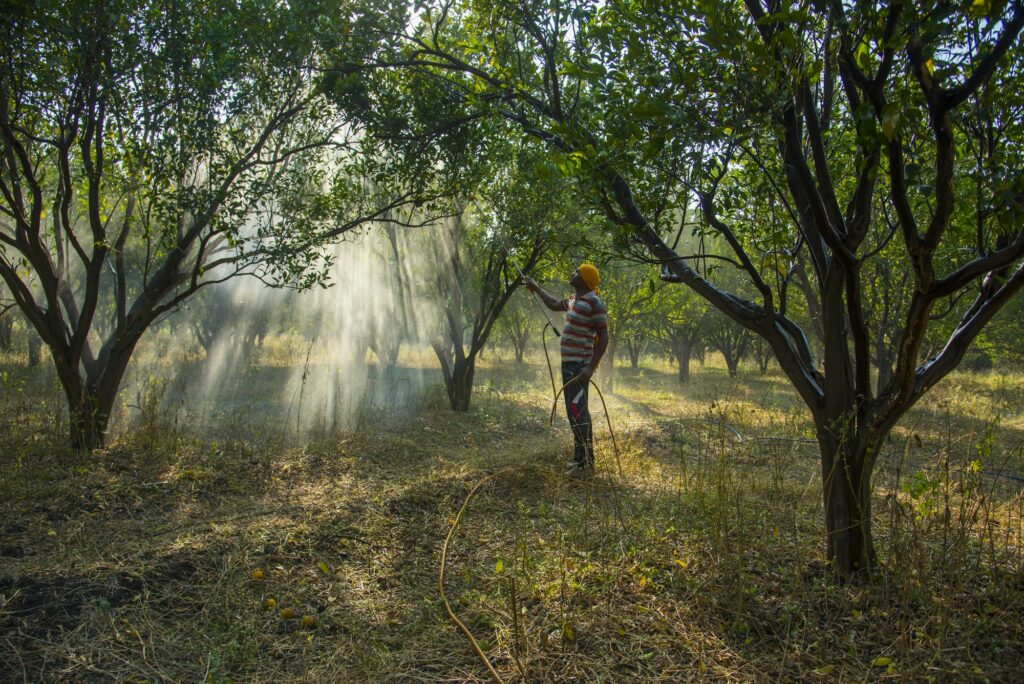
As the global population increases and climate change brings new uncertainties, the limitations of traditional farming methods are becoming more evident. Here are some of the challenges faced by farmers who rely on conventional practices, highlighting the need for innovative solutions:
- Unpredictable Weather Conditions: Traditional farming methods often lack access to accurate weather forecasts, making it difficult for farmers to plan their activities effectively. This can lead to poor decision-making regarding planting, irrigation, and harvesting, ultimately affecting crop yields and farm productivity.
- Inaccurate Decision-Making: Without access to advanced tools and real-time data, farmers often rely on past experiences for making critical decisions, such as soil preparation, crop selection, and planting times. These outdated methods can result in poor decision-making and suboptimal harvests.
- Pest and Disease Management: Conventional methods of managing pests and diseases are often reactive, with farmers noticing infestations or diseases only after significant damage has occurred. This can lead to substantial crop losses, with global estimates suggesting that pests account for 20% to 40% of crop production losses annually.
- Labor Intensiveness: Traditional farming is labor-intensive, requiring a significant workforce to manage time-consuming and physically demanding tasks. This dependence on manual labor not only drives up operational costs but also makes farming less efficient.
- Food Waste and Loss: Inefficiencies in the farm-to-table supply chain, coupled with the lack of tools to accurately predict market demand, often result in food waste and loss. Conventional farmers may overproduce or underproduce, leading to avoidable wastage.
The Role of AI in Transforming Agriculture

Artificial intelligence is going to completely change the trend related to agriculture. Greater use of Kisan Drones in the country’s agriculture is part of this change. Drone technology will be available on a scale only when we promote Agri-startups: PM @narendramodi
- Source:
https://www.marketsandmarkets.com/PressReleases/ai-in-agriculture.asp
https://www.statista.com/topics/4134/smart-agriculture/#:~:text=The%20market%20value%20of%20smart,billion%20U.S.%20dollars%20by%202027
https://www.meticulousresearch.com/product/smart-manufacturing-market-5265
https://www.zionmarketresearch.com/report/agricultural-robots-market#:~:text=The%20global%20Agricultural%20Robots%20market,20.2%25%20between%202023%20and%202030



